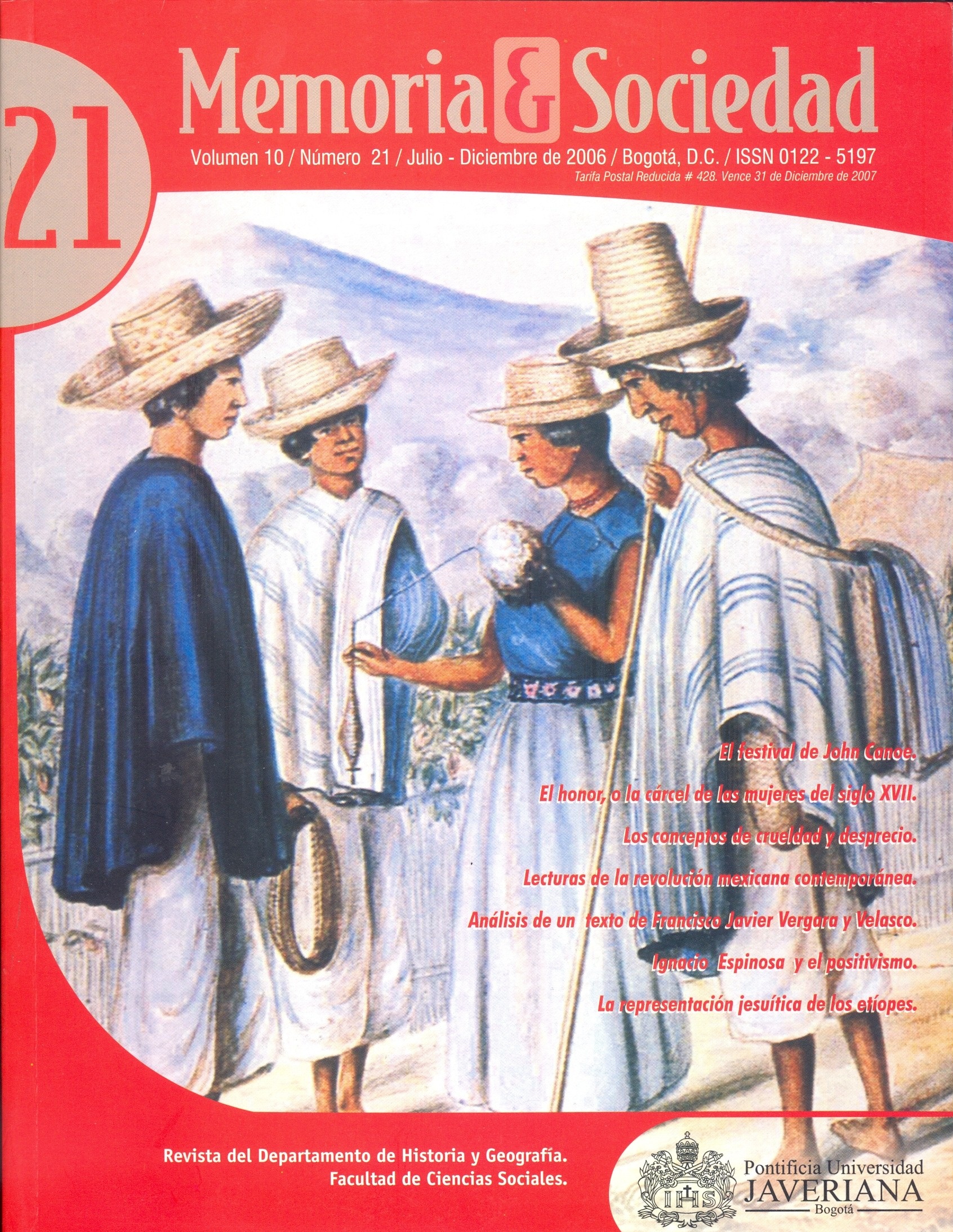Abstract
The purpose of this article is to expose the Work of Ignacio Espinosa, a liberal intellectual of the 19th Century, understood from three specific ways: its relationship with the intellectual group that determines him, the positivism that he promulgates, and the form that he builds his work, bound to some local mechanisms that facilitate the construction of knowledge. We will analyze the content of their more recognized works as positivists, without separating from this exercise, the way that these are product of a tradition and of some social factors that generate the credibility and the authorization to make statements and to speak on behalf of science.The journal Memoria y Sociedad is registered under a Creative Commons Attribution 4.0 International Public License. Thus, this work may be reproduced, distributed, and publicly shared in digital format, as long as the names of the authors and Pontificia Universidad Javeriana are acknowledged. Others are allowed to quote, adapt, transform, auto-archive, republish, and create based on this material, for any purpose (even commercial ones), provided the authorship is duly acknowledged, a link to the original work is provided, and it is specified if changes have been made. Pontificia Universidad Javeriana does not hold the rights of published works and the authors are solely responsible for the contents of their works; they keep the moral, intellectual, privacy, and publicity rights.
Approving the intervention of the work (review, copy-editing, translation, layout) and the following outreach, are granted through an use license and not through an assignment of rights. This means the journal and Pontificia Universidad Javeriana cannot be held responsible for any ethical malpractice by the authors. As a consequence of the protection granted by the use license, the journal is not required to publish recantations or modify information already published, unless the errata stems from the editorial management process. Publishing contents in this journal does not generate royalties for contributors.

